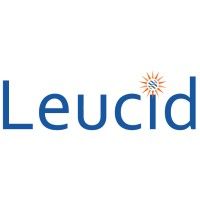预约演示
更新于:2025-12-05
LEU-004
更新于:2025-12-05
概要
基本信息
原研机构 |
在研机构 |
非在研机构- |
权益机构- |
最高研发阶段临床前 |
首次获批日期- |
最高研发阶段(中国)- |
特殊审评- |
关联
100 项与 LEU-004 相关的临床结果
登录后查看更多信息
100 项与 LEU-004 相关的转化医学
登录后查看更多信息
100 项与 LEU-004 相关的专利(医药)
登录后查看更多信息
3
项与 LEU-004 相关的文献(医药)2008-06-28·Clinical and experimental immunology3区 · 医学
Increased proportion of responders to a murine anti-CD3 monoclonal antibody of the IgG1 class in patients with systemic lupus erythematosus (SLE)
3区 · 医学
Article
作者: RODRIGUEZ, M A ; CALDERA, D ; LEON-PONTE, M ; STEKMAN, I L ; BLASINI, A M
SUMMARY:
A group of Venezuelan patients with SLE showed an increased proportion of responders to Leu-4, an anti-CD3 Mo Ab of the IgG1 class, compared with ethnically matched non-SLE patients and healthy controls. The rate of proliferative responses or IL-2 production induced by Mo Ab Leu-4, and the helper effect of macrophages from Leu-4 responders on T cells from a third-party donor were comparable in patients and controls. No significant differences in the binding of murine IgG1 molecules by macrophages from SLE patients and controls were observed. The proportion of monocytes/macrophages expressing FcγRI was significantly higher in SLE patients. However, the expression of FcRII, the type capable of supporting Leu-4-mediated responses, and of FcγRIII was comparable in monocytes from SLE patients and controls. Our results suggest that Venezuelan patients with SLE may have a genetic predisposition for the expression of the phenotypic variant of FcγRII capable of binding murine IgG1 molecules.
1991-02-15·Journal of immunology (Baltimore, Md. : 1950)
Stimulation through the TCR/CD3 complex up-regulates the CD2 surface expression on human T lymphocytes.
Article
作者: Yagüe, J ; Gallart, T ; Alberola-Ila, J ; Vives, J ; Places, L ; de la Calle, O ; Lozano, F ; Romero, M
Despite the well known interrelationship between the CD2- and CD3-mediated signal transduction pathways, it is not well established whether the CD2 surface expression can be regulated by triggering of TCR/CD3 complex. In this study we show that the stimulation of human PBMC with the Cris-7 (CD3) mAb, both in soluble and particulate form, results in hyperexpression of the CD2 surface Ag, as assessed by immunofluorescence and semi-quantitative immunoprecipitation assays. Similar effects on CD2 surface expression were obtained when different CD3 mAb (OKT3, RW2-8C8 and Leu-4) were tested. The CD3-mediated CD2 up-regulation was suppressed by cycloheximide and actinomycin D, indicating that it requires de novo protein and RNA synthesis. In agreement with this, increased CD2 RNA levels were observed after 3 h of stimulation, reaching a plateau at 24 h that was maintained for 72 h. The CD2 up-regulation was concomitant to other CD3-induced activation-related events such as induction of surface CD25 and CD71 and high RNA levels for c-myc, IL-2R alpha- and beta-chains, CD71, and IFN-gamma. CD2 up-regulation appeared to be elicited by a protein kinase C-dependent mechanism because it was abrogated by staurosporine, a potent protein kinase C inhibitor. Moreover, IL-2-dependent events may also help in enhancing CD2 hyper-expression because it was only partially inhibitable by cyclosporine, dexamethasone, or Mar-108 (CD25) mAb. In conclusion, our data suggest that CD2 up-regulation can be a relevant event in T cell activation triggered by the physiologic engagement of the TCR/CD3 complex.
1991-02-15·Journal of immunology (Baltimore, Md. : 1950)2区 · 医学
Stimulation through the TCR/CD3 complex up-regulates the CD2 surface expression on human T lymphocytes
2区 · 医学
作者: Yagüe, J ; Gallart, T ; Vives, J ; Alberola-Ila, J ; Places, L ; de la Calle, O ; Lozano, F ; Romero, M
Abstract:
Despite the well known interrelationship between the CD2- and CD3-mediated signal transduction pathways, it is not well established whether the CD2 surface expression can be regulated by triggering of TCR/CD3 complex. In this study we show that the stimulation of human PBMC with the Cris-7 (CD3) mAb, both in soluble and particulate form, results in hyperexpression of the CD2 surface Ag, as assessed by immunofluorescence and semi-quantitative immunoprecipitation assays. Similar effects on CD2 surface expression were obtained when different CD3 mAb (OKT3, RW2-8C8 and Leu-4) were tested. The CD3-mediated CD2 up-regulation was suppressed by cycloheximide and actinomycin D, indicating that it requires de novo protein and RNA synthesis. In agreement with this, increased CD2 RNA levels were observed after 3 h of stimulation, reaching a plateau at 24 h that was maintained for 72 h. The CD2 up-regulation was concomitant to other CD3-induced activation-related events such as induction of surface CD25 and CD71 and high RNA levels for c-myc, IL-2R alpha- and beta-chains, CD71, and IFN-gamma. CD2 up-regulation appeared to be elicited by a protein kinase C-dependent mechanism because it was abrogated by staurosporine, a potent protein kinase C inhibitor. Moreover, IL-2-dependent events may also help in enhancing CD2 hyper-expression because it was only partially inhibitable by cyclosporine, dexamethasone, or Mar-108 (CD25) mAb. In conclusion, our data suggest that CD2 up-regulation can be a relevant event in T cell activation triggered by the physiologic engagement of the TCR/CD3 complex.
100 项与 LEU-004 相关的药物交易
登录后查看更多信息
研发状态
10 条进展最快的记录, 后查看更多信息
登录
| 适应症 | 最高研发状态 | 国家/地区 | 公司 | 日期 |
|---|---|---|---|---|
| B细胞恶性肿瘤 | 临床前 | 英国 | 2025-05-01 | |
| 血液肿瘤 | 临床前 | 英国 | 2022-04-23 |
登录后查看更多信息
临床结果
临床结果
适应症
分期
评价
查看全部结果
| 研究 | 分期 | 人群特征 | 评价人数 | 分组 | 结果 | 评价 | 发布日期 |
|---|
No Data | |||||||
登录后查看更多信息
转化医学
使用我们的转化医学数据加速您的研究。
登录
或

药物交易
使用我们的药物交易数据加速您的研究。
登录
或

核心专利
使用我们的核心专利数据促进您的研究。
登录
或

临床分析
紧跟全球注册中心的最新临床试验。
登录
或

批准
利用最新的监管批准信息加速您的研究。
登录
或

特殊审评
只需点击几下即可了解关键药物信息。
登录
或

生物医药百科问答
全新生物医药AI Agent 覆盖科研全链路,让突破性发现快人一步
立即开始免费试用!
智慧芽新药情报库是智慧芽专为生命科学人士构建的基于AI的创新药情报平台,助您全方位提升您的研发与决策效率。
立即开始数据试用!
智慧芽新药库数据也通过智慧芽数据服务平台,以API或者数据包形式对外开放,助您更加充分利用智慧芽新药情报信息。
生物序列数据库
生物药研发创新
免费使用
化学结构数据库
小分子化药研发创新
免费使用
